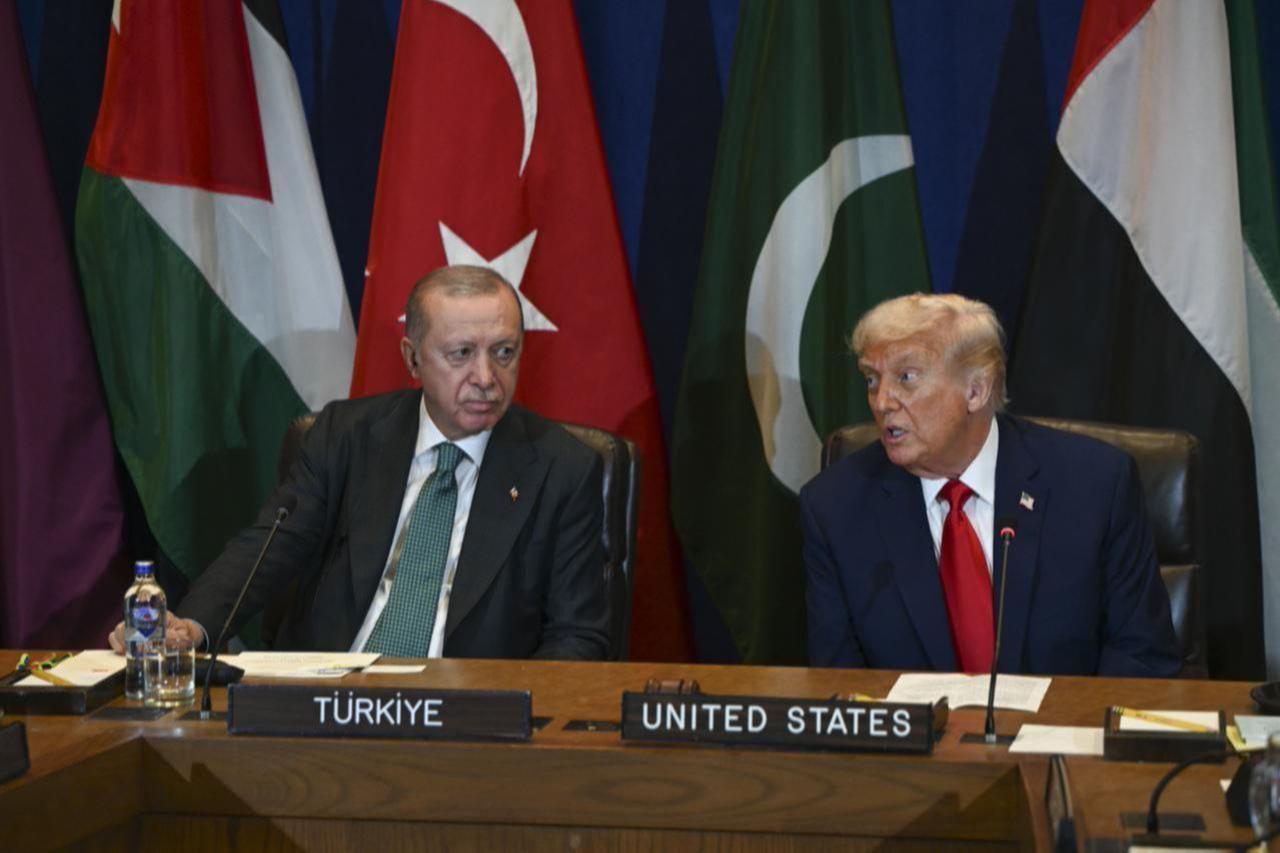
U.S. Ambassador to Ankara Tom Barrack said on Wednesday that President Donald Trump plans to give Türkiye the "legitimacy" it seeks, predicting "dramatic changes" in bilateral relations ahead of the White House summit on Thursday.
Speaking at the 2025 Concordia Summit panel "Voices of Diplomacy: Shaping America's Role in the World" on Sept. 24, Barrack revealed Trump's new approach to resolving decade-old disputes between the NATO allies.
The ambassador's comments came one day before President Recep Tayyip Erdogan's first visit to the White House since 2019.
That phrase sparked an immediate backlash, drawing criticism from opposition figures in Ankara. Reacting to the statement, some framed it as confirmation that Erdogan seeks external support to cover up domestic troubles. Analysts warned that the government was relying on foreign bailouts to balance its legitimacy deficit at home.
But within the context Barrack outlined, the legitimacy Trump was referring to had little to do with Türkiye’s internal politics. Rather, it was about repairing a strategic rift between Washington and Ankara that had widened under the Biden administration.
The “legitimacy” in question was less about internal governance and more about restoring Türkiye’s recognition as a regional power within NATO and U.S. strategy, and the last meeting between the leaders showed all the signs of it.
Barrack’s “we are giving legitimacy” remark was immediately followed by two other phrases: “you will see big changes” and “Trump and Erdogan can achieve a lot together.” The sequencing matters. It showed that the context was not about salvaging Erdogan’s domestic standing, but rather about outlining a foreign policy vision, as Trump has nothing to achieve in Turkish politics.
The latest meeting between the two leaders reinforced this point. Washington’s moves through Ankara are increasingly seen as a way to score against Moscow. Energy agreements—both in natural gas and nuclear technology—have begun reducing Türkiye’s dependence on Russia. Beyond the technical and economic dimensions, the message was that the U.S.-Türkiye relationship can be rebuilt on a level of trust above partisan politics, laying the groundwork for a stronger alliance over the years ahead.
In this framework, legitimacy referred not to internal politics but to overcoming the lobbying and smear campaigns—particularly those tied to the PKK—that had long hindered NATO coordination and bilateral cooperation. Recognizing Türkiye’s concerns was positioned as a prerequisite for a durable partnership.

Ambassador Barrack cast Trump’s record as a corrective to former U.S. President Joe Biden’s failed experiment. The Biden administration’s open embrace of the Turkish opposition, coupled with attempts to isolate Erdogan, had the unintended effect of pushing Türkiye into Russia’s orbit.
By contrast, Trump reduced programs like USAID and focused on direct state-to-state dealings. For him, legitimacy was about recognizing real power rather than extending support through conditional aid or political engineering.
That recognition was not an endorsement of Erdogan’s domestic rule but an acceptance of geopolitical reality. In Trump’s view, only by treating Türkiye as it is—an independent, strategically autonomous actor—could Washington hope to work with Ankara on regional security.
Trump’s own gestures were a highlight of this shift. At a recent meeting with Middle Eastern leaders, he seated President Recep Tayyip Erdogan beside him, showing Ankara’s importance in Washington’s regional calculations over the rest.
The very appointment of Barrack, a longtime confidant of the president and a distinguished figure who doesn’t resemble the past duty officers, signaled Trump’s willingness to approach Türkiye differently from conventional diplomatic channels.
The legitimacy Trump referred to was tied to Türkiye’s standing within the alliance and its ability to act free from lobbying and smear campaigns that, in Ankara’s view, had blocked cooperation for years. Particularly sensitive was the dispute over the PKK and its Syrian affiliate, the YPG, which Washington had partnered with for more than a decade now. For Trump, recognizing Türkiye’s “legitimate concerns” was a prerequisite for functional cooperation.
The president repeatedly credited Ankara with being the actor that forced change in Syria, pushing back not only against Russia but also Iran. To deny this role, Trump’s camp argued, was dogmatic and counterproductive. Legitimacy, in this sense, meant acknowledging Türkiye as a decisive middle power rather than treating it as a junior partner to be managed.
Main opposition Republican People’s Party's (CHP) Foreign Policy Coordinator Ilhan Uzgel and other party representatives described the statement as “damaging to the reputation of Türkiye.” For them, it was a recognition that Erdogan, facing discontent and economic pressures, relies on foreign policy to shore up his authority. Some argued that international backing was being used as a substitute for shrinking legitimacy at home.
During the Biden administration years, Türkiye’s ties with Washington were heavily strained, opening space for Russia to expand its influence over Ankara. Trump’s doctrine now frames that as a policy failure, suggesting that ignoring Türkiye’s role as a regional power only pushed it closer to Moscow.
The word “legitimacy”, being read in context, means re-establishing Türkiye’s recognition as a power whose influence in NATO and the Middle East cannot be ignored.